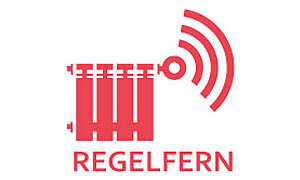
RegelFern
Co-funded by: European Regional Development Fund (EFRE)
Duration: April 2013 – June 2015
Topic: RegelFern is an industry-driven research project supported by European Regional Development Fund which adresses the remote access of meters under harsh channel conditions.
During the past few years, the smart metering technology attracted a substantial increase of interest in European countries. The main reason is the EU strategy aiming for reduction in CO2 emissions with the help of decentralized energy distribution on the smart grids basis. Producers of renewable energy are already obligated to install smart meters. The EU smart meter roll-out recommendation targets 80 percent of houses by 2020. Many countries e.g. Italy, Finland, Malta already decided about a mandatory roll-out with a specified timetable. Other countries will follow this trend as soon as robust and cost effective technology will be available for utility companies. The benefits are already clearly defined and include cost reduction in billing data collection, remote maintenance, monitoring and management or smart grid stabilization with mission-critical data.
While the possible application areas are well defined, the implementation of a flexible and low-cost system still remains challenging. Many of the smart meters being deployed use 2.4 GHz radios to transmit data but in buildings that house meters in basements, there is no way for these to penetrate yards of concrete. The alternatives being deployed include power-line carrier (PLC) or global system for mobile communications (GSM) technologies. But solutions like these come with extra costs and complications. Smart metering utilities, like electricity, gas, water or heat meters, are installed in different places within buildings. Typically, in single-family houses, they are all installed in basements. However, the majority of European multi-dwelling houses often have electricity meters mounted in corridors, water and heat meters in flats and gas meters in basements. Considering the varying environments and locations combined with a wide range of wall strengths makes it a daunting problem to find an optimal technology for all applications.
In this project, we aim to design RF-MIMO based, wireless communication system able to provide a robust communication from smart meter placed in a basement to a concentrator in another building, or a multi-hop based transmission between smart meters placed in basements of different buildings. The expected, maximal distance between buildings is 100-200 meters. We concentrate on frequencies below 1 GHz because of the excellent propagation characteristics. We set no constraint on energy budget because smart-meters are usually connected to a power source. However, the regulations set by authorities like maximum power levels or frequency band assignments have to be obeyed. We specifically aim at "short-range" frequency band reserved in Europe for smart-metering applications i.e. the 868 MHz and the "long-range" frequency band at 169 MHz. Other frequency bands, the 433 MHz reserved in Europe and Afrika or 915 MHz used in the USA or Russia are also covered.


